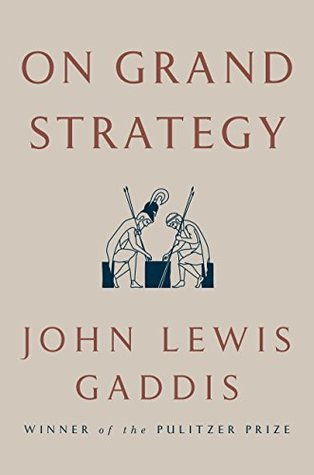More on this book
Community
Kindle Notes & Highlights
“if you were to take account of everything . . . , you would never do anything. It is better to have a brave heart and endure one half of the terrors we dread than to [calculate] all of the terrors and suffer nothing at all. . . . Big things are won by big dangers.”
“The fox knows many things, but the hedgehog knows one big thing.”
Hedgehogs, Berlin explained, “relate everything to a single central vision” through which “all that they say and do has significance.” Foxes, in contrast, “pursue many ends, often unrelated and even contradictory, connected, if at all, only in some de facto way.”
The Aeneid, unlike The Iliad and The Odyssey, is a commissioned work. Augustus encouraged its composition, subsidized its author, and saved the manuscript from the flames when the dissatisfied Virgil, on his deathbed, asked to have it burned.
“No other human activity is so continuously or universally bound up with chance,” Clausewitz writes of war in On War. It’s a “paradoxical trinity,” composed of the passions that cause combatants to risk their lives, the skill of their commanders,
and the coherence of the political objectives for which the war is being fought. Only the last is fully governed by reason:
the others inhabit the murky realms of emotion, “where all the usual landmarks se...
This highlight has been truncated due to consecutive passage length restrictions.
What’s needed, then, is “a theory that maintains a balance between these three tendencies, like an object sus...
This highlight has been truncated due to consecutive passage length restrictions.
What Tolstoy means here—I think—is: (a) that because everything connects with everything else, there’s an inescapable interdependency across time, space, and scale—forget about distinguishing independent from dependent variables; (b) that, as a consequence, there’ll always be things that can’t be known—breaking them into components won’t help because there’ll always be smaller components; (c) that owing to what we can’t know, we’ll always retain an illusion of agency, however infinitesimal; (d) that while laws may govern these infinitesimals, they make no difference
to us because we can’t feel their effects; therefore (e) our perception of freedom is, in practice, freedom itself.
how, if God is omnipotent, can man have free will?
The modern term for sketching in strategy is “net assessment,”71 an evocation—never simply a list—of the elements, in environments, most likely to determine outcomes. If done well it will include “knowns”—geography, topography, climate, your own capabilities, the objectives you’re seeking; “probabilities”—the goals of adversaries, the reliability of allies, the constraints of cultures, your country’s capacity to endure adversity; and, finally, a respectful acknowledgment of the “unknowns” that will lurk in the intersections of the first two.
For as you balance knowns, probabilities, and unknowns, you’re also doing so across time, space, and scale.
“[I]n war, as in life generally,” Clausewitz explains, “all parts of a whole are interconnected and thus the effects produced, however small their cause, must influence all . . . operations and modify their final outcome to some degree, however slight.”
Theory versus practice. Training versus improvisation. Planning versus friction. Force versus policy. Situations versus sketches. Specialization versus generalization. Action versus inaction. Victory versus defeat. Love versus hate. Life versus death. Leading from within clouds versus keeping the ground in view. But no “versus” whatever between art and science. It’s not too much to suggest, therefore, that Clausewitz and Tolstoy together are, in the amplitude, imagination, and honesty with which they approached these great issues, the grandest of strategists.
Then, in 1857, the Supreme Court widened divisions by ruling, in Dred Scott v. Sandford, that Congress lacked the authority to regulate slavery in any of the new territories: the Declaration of Independence, it gratuitously added, couldn’t have meant to
include “Africans,” slave or free, when it proclaimed “all men” to be created equal.37 Douglas, his schemes shattered, had failed to foresee any of this.
What Lincoln had shown was the practicality, in politics, of a moral standard. I mean by this an external frame of reference that shapes interests and actions, not—like Douglas’s—an internal one that only reflects them. Lincoln’s didn’t arise from faith, or formal ethics, or even the law, a profession necessarily pragmatic in its pursuit of justice. It emerged instead from what experience had taught, from the self-education that widened it, and from the logic in which Lincoln grounded his oratorical lightning. Judge Douglas’s amorality, therefore, was not just wrong: it violated the most basic
...more
the better angels of our nature.”57
Lincoln here stated, more clearly than Clausewitz, a Clausewitzian fundamental: that it made no sense to save a part while losing the whole. Hence it was only common sense to conclude that “the political object is the goal, war
is the means of reaching it, and means can never be considered in isolation from their purpose.”71
Clausewitz’s great paradox: that “everything in war is very simple, but the simplest thing is difficult.”
Lincoln defined his nation’s responsibility as one of


